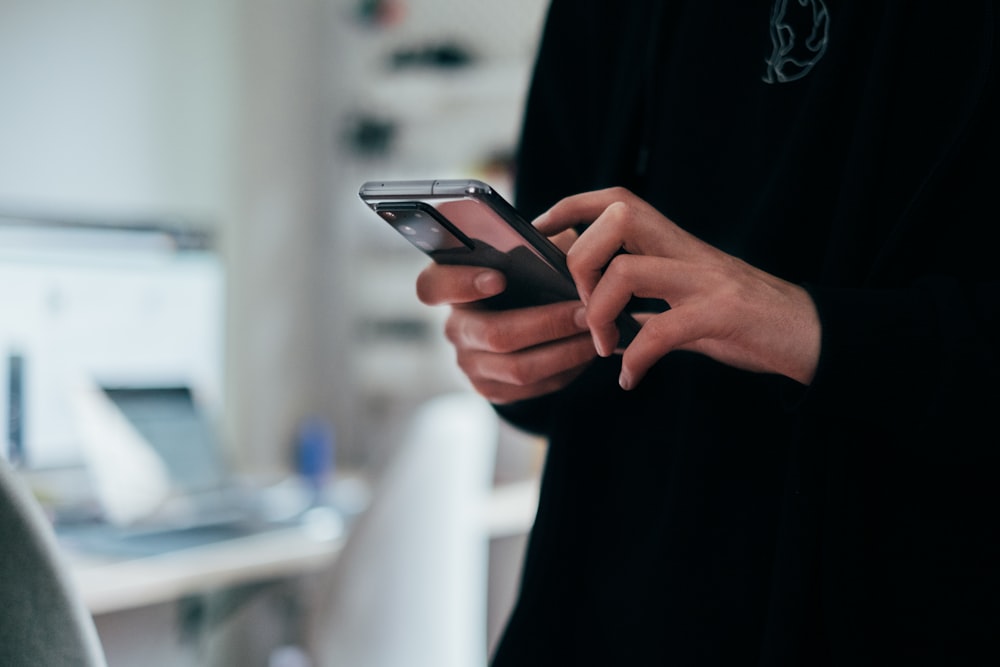Smartphones have become an essential part of our daily lives. For students, they can be a valuable tool to help with studying, organization, and communication. But, with so many apps and features, it can be overwhelming to know where to start.
Smartphones allow you to stay connected with friends and family through various communication tools. They can be used to access work-related tools and apps, giving you instant access to a wealth of information.
For example, If you type the query “who can write paper for me” in the search bar, the smartphone will display the best services for finding authors. In the service link, professional authors write essays on any topic and save you a lot of time. But this is far from the only advantage of the smartphone.
In this post, we’ll go over some tips on how students can get the most out of their little helpers.
7 Ways to Improve Your Life Using a Smartphone
It is possible to improve your life using a smartphone, but it depends on how you use it. Smartphones can be a valuable tool for staying organized and connected and accessing information. But they can also be a source of distraction and can negatively impact mental and physical health if overused or used in inappropriate ways.
Here are a few ways that smartphones can be used to improve your life:
1. Use it to stay organized
Your smartphone has a calendar app that can be used to set reminders for assignments, exams, and meetings. You can also use apps like Evernote or OneNote to take digital notes and apps like Trello or Asana to keep track of your tasks and projects.
2. Use it to study
Some countless apps and websites can help you study. From flashcard apps like Quizlet to online courses on platforms like Khan Academy or Coursera. Some apps like Duolingo or Babbel can help you learn a new language, which can be a valuable skill for any student.
3. Use it for communication
Your smartphone has a variety of communication tools. You can use text messaging, email, and social media to stay in touch with classmates and professors. Video conferencing apps like Zoom or Google Meet can also be used for online meetings and class discussions.
4. Use it for research
Your smartphone has a web browser that can be used to access online research materials, such as academic journals, articles, and books. You can also use apps like Google Scholar or JSTOR to search for scholarly sources.
5. Use it for entertainment
Your smartphone has a variety of apps and games that can be used for entertainment, such as streaming apps like Netflix, Spotify, or YouTube. But it’s important to use these apps in moderation and not let them interfere with your studies.
6. Use it to stay healthy
Your smartphone has a variety of apps that can help you stay healthy, such as fitness trackers, calorie counters, and meditation apps.
7. Use it to stay secure
It’s important to keep all your passwords safe. With a smartphone you can be secure by keeping your passwords in one place protected by a master one. You should also enable two-factor authentication, and stay wary of phishing scams.
These are just a few examples of the less-known but still useful functions that smartphones can offer. As technology continues to evolve, we are going to see more of these types of functions that make our daily life more convenient and efficient.
Best Smartphone Functions You Might Not Know About
Here are a few examples of less-known but still useful smartphone functions that can be useful in daily life.
QR code reader
Many smartphones now have a built-in QR code reader, which can be used to scan QR codes on products, tickets, or posters and quickly access additional information or complete a task such as making a payment or joining a wifi network.
Digital wallet
Many smartphones now can store digital versions of credit and debit cards, allowing users to make contactless payments or online transactions with ease.
Speech-to-text
Many smartphones have a built-in speech-to-text function that can be used to dictate messages, emails, or notes, making it easier to send or document information on the go.
Smart home integration
Smartphone apps can be used to control smart home devices such as lights, thermostats, and security systems, allowing users to control their homes remotely.
Translation
Some smartphones have built-in translation apps or can download translation apps, which can be used to translate text or speech in real-time, making it easier to communicate with people who speak different languages.
Virtual and augmented reality
Some smartphones now include VR or AR technology. This technology can be used for gaming, education, and even remote work and collaboration.
Health tracking
Some smartphones have built-in health-tracking features such as step counters, heart rate monitors, and sleep tracking, which can be used to monitor and improve overall health and fitness.
These are just a few examples of the less-known but still useful functions that smartphones can offer. As technology continues to evolve, we are going to see more of these types of functions that make our daily life more convenient and efficient.
In Conclusion
However, it’s important to be aware of the potential downsides of smartphone use as well. Overuse of smartphones can lead to addiction, negatively impact sleep, and lead to feelings of isolation, depression, and anxiety. It’s important to strike a balance and use the smartphone in moderation and in a way that positively contributes to one’s life.
Smartphones can be a valuable tool for students, but it’s important to use them in a way that’s beneficial to your studies and daily life. With the right apps and settings, you can use your smartphone to stay organized, study, communicate, research, and even stay healthy. Just remember to use it in moderation and keep your device and personal information secure.
Published by HOLR Magazine.




